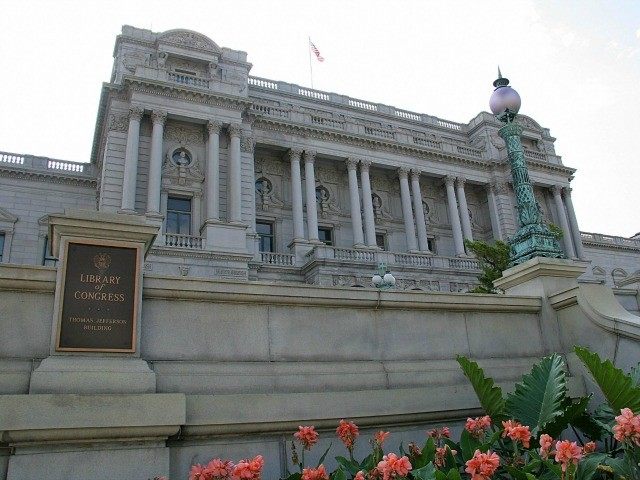Washington bureaucracies don’t use the same words as the rest of us.
The U.S. Customs and Immigration Enforcement calls the President’s 2014 executive amnesty “deferred action for parents of Americans and lawful permanent residents.”
Government agencies referred to Senate Democrats’ 2013 government shutdown as “a temporary lapse in appropriations.”
And the 2015 Boehner-Obama budget deal that busted previously enacted spending caps and suspended the debt ceiling until 2017 was given the nonthreatening title of the Bipartisan Budget Act of 2015. Because who could vote against that? (I did)
It’s as though Washington-types think that, by softening their description of the challenges we face, we can make the challenges themselves go away, or at least conceal them from the American public. Such appears to be the motivation behind the latest policy change from the Library of Congress.
On March 22, the world’s largest library announced that it would cancel the use of “illegal alien” and the broader term “alien” as bibliographical terms, writing in a three-page memo that the phrases are “pejorative” and “often misunderstood.” The Library of Congress explained that the terms will be swapped out for broader phrases such as “noncitizens.”
The decision was reportedly made in response to a student petition from Dartmouth College’s “Coalition for Immigration Reform, Equality and DREAMers.” Setting aside the fact that liberal student groups probably shouldn’t be able to bully a Congressional research arm into unprecedented policy changes, it begs the question – misunderstood by whom?
Since the Naturalization Act of 1790, our government has recognized “alien” as an appropriate description for noncitizens. The term is still found in U.S. code and, just this week, was uttered by Justices Ginsburg, Sotomayor, and Kagan – not exactly immigration hardliners – during oral arguments in United States vs. Texas, the court case challenging President Obama’s executive action on immigration.
If the phrase is suitable for our law books and even our most progressive Supreme Court justices, than it ought to work just fine for the Library of Congress.
That is why I introduced the Stopping Partisan Policy at the Library of Congress Act – legislation preventing the Library of Congress from capitulating to hyper-political correctness and instead directing the library to continue using “alien” and “illegal alien” as reference terms, just as they were before.
In this situation, our words matter. I’m not an immigration lawyer, but I am a nurse and I learned a long time ago that you won’t have much success curing a condition you refuse to first properly diagnose.
Similarly, when our bureaucracies trade common-sense language for sanitized political speak that ignore reality and downplay the toll of illegal immigration, it results in barriers making it that much more difficult to ultimately solve the problem.
Coming up with a new, politically correct term for those who defy our laws to cross our borders doesn’t diminish the threat of illegal immigration on our economy, our national security, or our sovereignty. My constituents know that, I know that, and its time the Library of Congress recognized this truth as well.
Congress must act to pass the Stopping Partisan Policy at the Library of Congress Act without delay and send a message to D.C. bureaucracies: stop thinking about the most PC way to describe illegal immigration, and start working with us on solutions to address it.

COMMENTS
Please let us know if you're having issues with commenting.